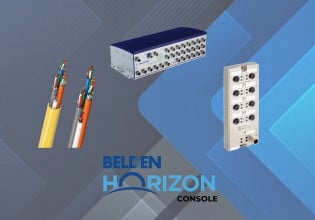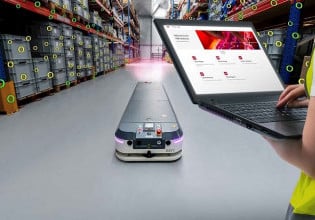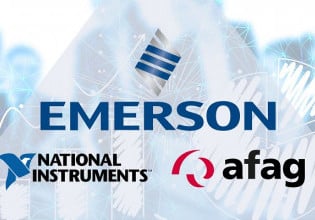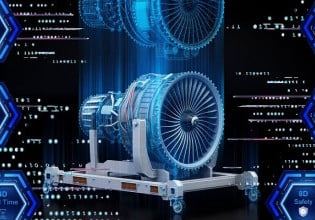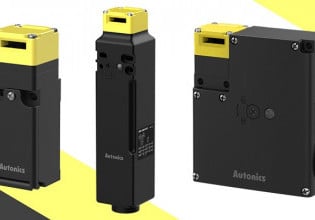Turck Creates Smart RFID Forklift System to Improve Product Tracking
RFID can be a useful manufacturing and logistics operation tool when tracking important products. Turck recently announced their new forklift RFID system to help with monitoring and communication.
Turck is a family-owned company that takes pride in quick adaptability to customers' differing needs. The company employs more than 4,500 people in 30 different countries, making them a global resource in sensor, fieldbus, and connectivity technology and solutions for over 60 years. They are also known for their expertise in RFID and HMI systems.
Recently, Turck announced the release of their new RFID forklift system for improved product tracking.

RFID stick-on tags are used for all kinds of tracking applications. They can also be found inside ID badges. Image used courtesy of Turck
What Is RFID?
As the name suggests, radio frequency identification (RFID) consists of a wireless form of identification or communication. It works through electromagnetic or electrostatic coupling in order to identify a specific “tag” without the need for a line of sight or direct contact connection. The tag contains both an antenna and a transceiver that send and receive messages from a transponder. The transponder is located in the tag and can use energy from the sent radio waves to power a signal to be sent back to the transceiver. Proximity is the only prerequisite to successful tag reading.
RFID tags usually transmit only a single identification number which is received and matched to a database to provide further asset information, like a vehicle model number or last service date, etc. This way, detailed information does not need to be written or updated on the tag itself.

Pairing RFID with forklifts can ensure that products of all shapes and sizes can be tracked and timed to optimize processes. Image used courtesy of Turck
What Are the Benefits of RFID?
The use of RFID technology has many potential benefits for manufacturers and logistics operations. It allows manufacturers to keep track of products with individual tags that can be read without the need for visual tag reading. These tags can be found in all kinds of items, from library books and CDs to packages, to employee ID badges, all with the same kind of transponder interface.
Manufacturers can gain some or all of the following benefits with the addition of RFID technology to their current processes:
- Real-time product visibility
- Asset tracking
- Improved batch and series control
- Simultaneous detection of multiple objects
- Misplaced product reductions
- Reduced line-of-sight issues
- Product flow optimization

Turck’s new RFID forklift system tracks assets and inventory in all kinds of logistics settings. Image used courtesy of Turck
Turck’s New Smart RFID Forklift System
Turck's new RFID forklift system can be used on nearly any forklift and is useful for manufacturers looking to add RFID to their current manufacturing and logistics processes. The system allows each forklift to know exactly what it is transporting at any given time, whether it's a pallet of goods or another object of significant importance.
The smart RFID system is also capable of tracking product as it moves through space so its location within the warehouse or plant is known at all times, as it moves from one locale to another. Each reader contains proprietary software reducing the chances of a stray read by the forklift as it passes other products in the facility. The reader comes with 2-4 UHF antennas, depending on what exactly the device’s intended use happens to be.
Products can be tracked and communicated to the end user’s ERP, WMS, or SAP software. Event data consists of the assets description, the new location, and a time stamp for later use and product monitoring. Lastly, all forklifts can be set up to communicate with each other using the client's backend system for more precise plant operations.

